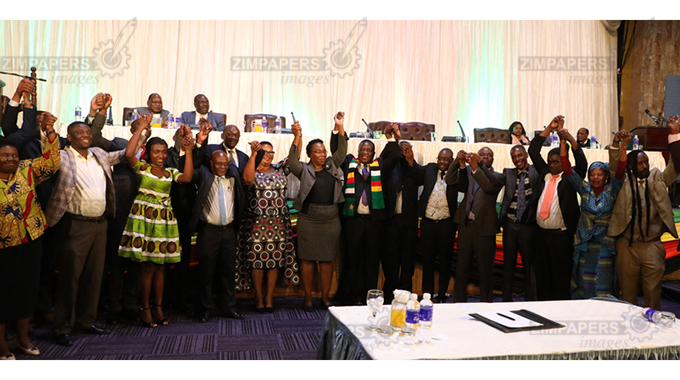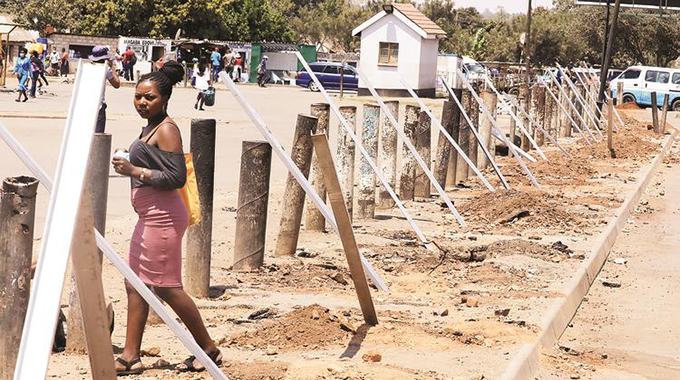Second Republic’s major strides towards peace hailed

Elliot Ziwira Senior Reporter
As the world celebrates the International Day of Peace today, the National Peace and Reconciliation Commission has hailed the huge strides made towards conflict resolution under the Second Republic, urging Zimbabweans to focus on socio-economic development and peaceful co-existence to eradicate poverty.
Political Actors Dialogue and the Church have also added weight to the call, imploring Zimbabweans from across the political divide to desist from violence, disunity, polarisation and disharmony.
National Peace and Reconciliation Commission member and spokesperson Dr Geoffrey Chada said the Second Republic under President Mnangagwa had taken a bold step towards addressing conflict through the signing of the National Peace and Reconciliation Commission Act on January 5, 2018.
This paved the way for dialogue towards sustainable peace and peaceful co-existence.
Dr Chada said the Second Republic had inherited conflict issues, such as the emotive Gukurahundi, which had continued to deny the nation peaceful co-existence over the past three decades.
The commission, he said, was ready to play its role as mandated by the Constitution, to unite Zimbabwe for sustainable peace by developing mechanisms for resolving violent conflicts of the past and present and preventing their recurrence.
Under the leadership of President Mnangagwa, the Second Republic had made re-engagement one of its key priorities and had established a platform for dialogue with political parties, churches and civil society organisations, to put closure to past conflicts, particularly the Gukurahundi issue.
The issuance of birth and death certificates for Gukurahundi victims had also been given priority through legislative input.
In February this year, the commission started a training programme for provincial peace committees as part of its constitutional mandate.
The committees were set up last year, with every commissioner superintending a committee of between 25 and 30 members. However, the Covid-19 pandemic had stalled progress, with public hearings to get citizens’ input being put on hold because of lockdown restrictions.
Dr Chada said Zimbabweans should commit themselves to the creation of an economic, political, social, cultural and legal environment that enabled the achievement of socio-economic development and poverty eradication.
“The politics of peace as the politics of love means that to have peace, you must deal with your heart first. This is where the primary battlefield is located. What is allowed to conquer the heart will conquer a country. If conflict conquers my heart, it will conquer Zimbabwe”, said Dr Chada.
“If peace, forgiveness and reconciliation conquer my heart, then peace, forgiveness and reconciliation will conquer this country. Peace is a political virtue which should dominate our political thinking and action at all levels of our society,” he said.
Dr Chada underlined the need to create an environment that recognised the universality of human rights as enshrined in all international conventions without hindrance from an individuals or groups claiming to be authorities.
Political analyst Mr Obert Gutu said as the benchmark of political stability, peace was the biggest catalyst and ingredient for socio-economic development.
“The International Day of Peace is a very important day in that it allows the world to recognise and celebrate the importance of peace. The world cannot sustain political stability and socio-economic advancement without the existence of peace,” Mr Gutu said.
National Constitutional Assembly president Professor Lovemore Madhuku said peace was the starting point to all human undertakings.
“Without peace, there can be no economy, without peace, politics is meaningless and more importantly, it is impossible to conceive social life outside a peaceful environment,” Prof Madhuku said.
Bethel Christian Party leader Dr Willard Tawonezvi Mugadza, said the prosperity of any nation was built on peace and praised President Mnangagwa for opening up spaces for constructive dialogue aimed at thwarting politics of negativity.
“Under the Second Republic, we have an opportunity, as opposition political parties, to move away from Western type opposition ideology that is meant to create negative political energy in the country.
“We must, as opposition political parties, create an environment where the Government is willing to engage constructively and respectfully with us. That way, our suggestions on issues of national-building can be considered favourably,” Dr Mugadza said.
Roman Catholic Jesuit priest Father Fidelis Mukonori, said as the Church, they believed in the eternality and universality of peace.
“Peace is the other name for life, because you cannot have peace without life. Peace is not an absence of war, because it is an entity in its own right,” Fr Mukonori said.
Zimbabwe Media Commission chair, Professor Ruby Magosvongwe said: “Peace is an achievable attribute and everyone without exception has a part to play. The media should play a leading role in telling our story of peace for us to move forward as a nation.”
The International Day of Peace was established by the United Nations General Assembly in 2001 and warring parties are urged to lay down their arms on this day and observe a 24-hour global ceasefire.









Comments